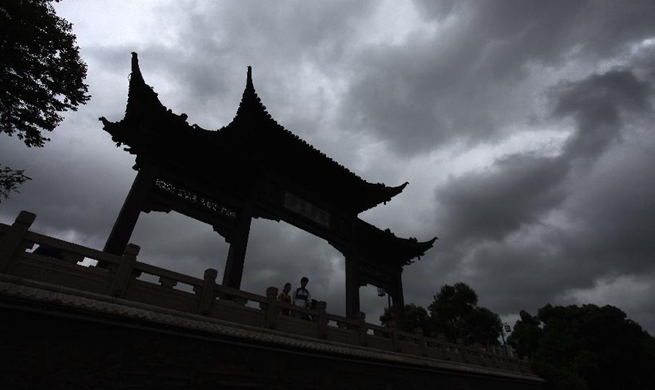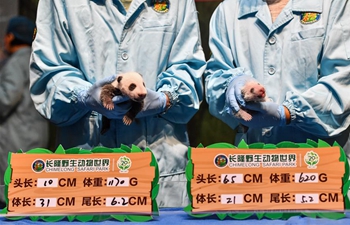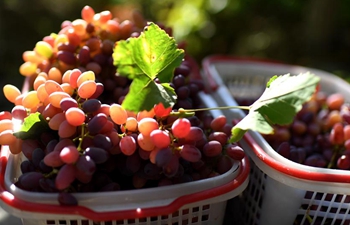by Stefania Fumo
ROME, Aug. 13 (Xinhua) -- Italy's sea coasts have excessive levels of untreated sewage, and this is costing taxpayers millions of euros in European Union (EU) fines, Legambiente environmentalist association said in its annual report Monday.
Every summer for the past 30 years, the group's Goletta Verde (Green Schooner) environmental monitoring vessel has sailed all around the Italian peninsula with volunteers and scientists on board, collecting water samples along Italy's almost 7,500-km shoreline and testing them for bacteria, toxic substances, and other forms of pollution.
This year the Goletta Verde set sail on June 22 from the northwestern region of Liguria, where the celebrated Cinque Terre (Five Lands) coastal area is a UNESCO World Heritage site, and completed its circumnavigation of the Italian peninsula when it docked in the northeastern Friuli Venezia Giulia region on Aug. 12.
During the journey, Legambiente scientists took water samples at 261 spots in 15 regions up and down Italy's scenic coasts, of which 57 percent were collected at the mouths of rivers, canals, and other waterways and 43 percent at beaches.
Overall, Legambiente found that 39 percent of the water samples were "severely polluted" and 9 percent were "polluted" by untreated sewage. The worse locations were at the mouths of rivers and canals, of which 71 percent turned out to be "severely polluted" and 10 percent were "polluted".
"Italy has been condemned twice by the European Union (EU) and is undergoing a third infraction procedure for untreated sewage in 909 urban settlements," Legambiente's 2018 report pointed out.
Of the communities at fault, 25 percent are located in Sicily, 16 percent in Calabria and 13 percent in Campania -- three southern regions whose spectacular coasts are a major attraction for tourists and holidaymakers alike.
"The large-scale public work which no one talks about in our country is completion of the sewage system and of the sewage treatment network," Legambiente Director General Giorgio Zampetti said in a statement, adding that untreated sewage is an ongoing "environmental emergency" which is costing Italian taxpayers millions of euros in EU fines.
"The EU has fined us 25 million euros (almost 29 million U.S. dollars), plus another 30 million euros every six months until we comply with regulations," Zampetti said.
Also in its 2018 report, Legambiente said that its volunteers have collected almost 50,000 pieces of trash on 78 beaches extending over an area equal to 60 football fields. Of these, 80 percent were made of plastic, and one in three were single-use items.
Since the beginning of the year, Legambiente volunteers have cleaned up 500 beaches, removing 180,000 bottles and bottle caps, 96,000 Q-tips, and 52,000 plastic plates, cups, cutlery, and straws.
Plastic is dangerous for the environment because it eventually breaks down into millions of microscopic particles (microplastics), which are impossible to remove completely and which enter the food chain, killing fish and birds and damaging biodiversity.
Campaigns against microplastics have been launched by the United Nations, Greenpeace, and other organisations.













